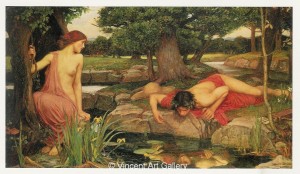The informant is a Sophomore at the University of Southern California. She reports a legend about Slender Man, an alleged paranormal figure who has existed for centuries in different civilizations throughout the world.
Nys: “Okay, so he is this like really skinny stick figure looking guy, and apparently he like lures children, typically vulnerable people into the woods and makes them do like crazy shit, like kill people. I don’t know, it’s weird, but basically the only reason I know about this is because I saw a news report on how his- they call it creepy pasta online- how his creepy pasta made two young girls in, I think Wisconsin, stab their friend nearly to death. She survived, but they like lured her into the woods and basically like stabbed her because they worshipped Slender Man and were attempting to make a sacrifice for him.”
Me: “what culture is this from?”
Nys: “I’m not sure. I think it’s American culture. I didn’t really look too much into where it came from. It like started on the internet I know for sure though, so like it was shit that they would post on Read It and people who were really into his fan base put their stories of him on there.”
Me: “What do you think about this story?”
Nys: “ In terms of the things that happened with the little girls, it’s creepy and insane and it says a lot about how important mental health in childhood is and in general. This is just one story but it’s significant to me because I think internet folk stories are fascinating.”
It’s fascinating to me that such folklore can influence people’s behaviors, but this particular story is unsettling. It suggests how powerful some legends and other folkloric pieces can be for the intended audience, especially children. Slender Man, who originated as an internet meme, is an example of how the internet is a massive contributor to the distribution of folklore stories. People are able to communicate with one another and share their opinions, thoughts, and ideas. For more Slender Man lore visit “The Slender Man.” Creepypasta Wiki. Web. 28 Apr. 2016.


